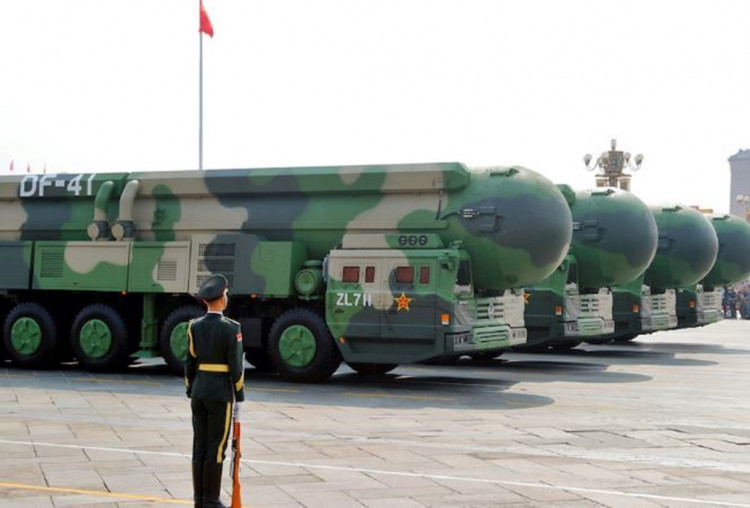China's 50 operational nuclear reactors, the third largest number in the world in a single country, are now producing nuclear waste in quantities that will allow it to expand reprocessing into the fissile materials needed to make nuclear weapons.
Reprocessing nuclear waste at special facilities produces plutonium and highly enriched uranium, which are the fissile materials essential to making nuclear weapons. China already has one operational reprocessing plant with a second expected to come online by 2030.
Reprocessing consists of a series of chemical operations that separate plutonium and uranium from other nuclear waste contained in spent fuel produced by nuclear power reactors.
While there is no direct evidence China plans to produce weapons-grade plutonium through reprocessing, Western military analysts contend this will become inevitable as China modernizes its nuclear missile arsenal.
Chinese nuclear experts, however, contend China is building reprocessing facilities and nuclear reactors to mainly reduce its huge dependency on coal and not to make more nuclear weapons.
China does not reveal the exact number of nuclear weapons it possesses and the stocks of fissile materials it owns. It's also not officially declared it's ended the production of highly enriched uranium and plutonium.
A paper published early this year by the Bulletin of the Atomic Scientists based in Chicago says China has 350 nuclear warheads, significantly more than the estimate of 220 warheads made by the U.S. Defense Department in its 2020 report on China's military.
"To reduce international concerns about the potential plutonium diversion issues, China needs to keep its plutonium recycling programs more transparent including timely reporting of its stockpile of civilian plutonium like they did before 2016," said Hui Zhang, a senior research associate at Harvard University's Project on Managing the Atom.
Zhang also said China should also offer to have its plutonium recycling facilities monitored by the UN International Atomic Energy Agency (IAEA). China is an IAEA member.
A report by the Nonproliferation Policy Education Center recommends the U.S. urge China to join it, South Korea and Japan, in sharing information on current plutonium and enriched uranium holdings and production capacities.





